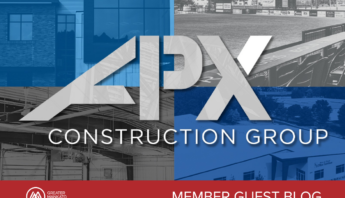
When Businesses Support Citizen Warriors It Is a Win for Companies and the Nation
Blog written by APX Construction Group, a Greater Mankato Growth Copper Investor. APX Construction Group CFO, Emilie Prange, was recognized by the United States Department of Defense with the Patriot Award for her support of a citizen warrior in the workplace. The Patriot Award was







